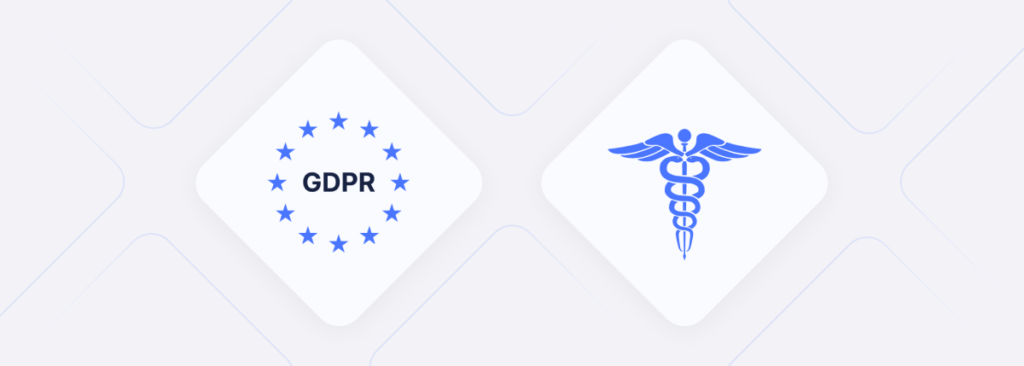Ethics in AI-Driven Hiring in the Healthcare Industry
Artificial Intelligence is changing how we hire in healthcare. Smart recruiting tools speed up the process, help find the best professionals, and save valuable time for everyone involved. As we adopt and rely on AI more widely, we must watch out and address concerns around transparency and ethics.

Hiring in Healthcare Before AI
Before AI, hiring in healthcare relied heavily on human efforts, often leading to long hiring timelines and biases. The traditional hiring methods included:
Manual Resume Screening: Recruiters had to sort through hundreds of resumes manually, looking for the right skills, certifications, and experience. This process was slow and repetitive, delaying hiring for essential job roles.
Subjective Assessments: Before AI, healthcare recruiters evaluated candidates with handwritten medication-calculation quizzes, paper skills checklists, scenario-based panel interviews, and verbal reference checks.
Limited Talent Pools: Employers mostly prioritized their local job ads, professional contacts, and referrals. This gave them a smaller pool of candidates, limiting their access to diverse, high-quality candidates.
Slow Hiring Timelines: Hiring for critical medical roles would take months, sifting through hundreds of resumes, multiple rounds of interviews, checking credentials, and slow communication. The lengthy process exacerbated staff shortages.
Manual Compliance and Credentialing: Even after a candidate accepted an offer, the HR team still had to spend days contacting state boards via phone or email to verify licenses and certifications. This is a slow and fragmented process that is prone to error and stretches for weeks and months.
Hiring in Healthcare in the Age of AI
Artificial Intelligence has dramatically improved healthcare recruitment, slashing time-to-hire from several weeks to just a few days. With the integration of AI in hiring, the landscape has changed significantly, making processes more efficient and easier.

Automated Resume Screening: In just seconds, AI screening tools analyze resumes, filtering candidates whose skills and credentials meet the role’s requirements while flagging non-matches.
Data-Driven Assessments: AI-powered platforms present virtual clinical scenarios, medication-calculation quizzes, and structured video interviews. Natural-language processing and behavioral analytics evaluate the candidate’s clinical judgment and teamwork against evidence-based benchmarks. These objective dashboards, driven by AI in healthcare, let recruiters compare applicants consistently and identify the talent most likely to excel in patient care.
Accelerated Hiring Processes: Automated scheduling, communication, and follow-ups help recruiters move candidates faster through the hiring funnel. This prevents delay and a lack of staff that may affect patient care.
Enhanced Compliance and Credential Verification: AI verification systems accurately check licenses, certifications, and background information. This speeds up the hiring process while ensuring that rules are followed.
Bias Reduction: Advanced AI tools focus on relevant skills and qualifications, not personal characteristics, reducing bias. However, regular updates and checks are always required to ensure fairness. While no tool is perfect, well-trained AI tools help reduce unfair judgment.

Challenges in Healthcare Recruitment Ethics
According to AI healthcare statistics, while AI enhances efficiency, it also comes with complex ethical risks that recruiters must navigate carefully.
1. AI Bias in Recruitment
AI algorithms learn from historical data, which often carries human biases. If past hiring practices favored certain demographics, AI may enhance those biases.
An AI system trained on historical hiring data might inadvertently prioritize candidates from specific backgrounds or exclude qualified individuals based on non-relevant attributes like gender, ethnicity, or even zip code. Unchecked bias in AI-driven hiring can reinforce disparities and compromise patient care quality in the long run. Partnering with experts in healthcare analytics consulting can help organizations audit algorithms, identify bias, and ensure more equitable recruitment outcomes.
2. Lack of Transparency and Explainability
Providing candidates with clear explanations behind decisions enhances transparency. But many AI hiring tools are “black boxes”, driven by complex algorithms, making it difficult for recruiters to explain decisions.
Black boxes are AI systems that assist organizations in decision-making through deep learning. However, they operate using complex algorithms that do not provide clear explanations for the decisions they produce. To improve transparency, organizations might consider leveraging ai model training services that incorporate explainability features.
Without transparency and explainability, organizations risk losing trust and may face legal challenges if candidates claim the decisions to be unfair. The decisions as arbitrary or unfair.
3. Lack of Data Privacy and Consent
AI tools need substantial amounts of personal and professional data about applicants. In the medical sector, where privacy is crucial, it is essential to handle sensitive information responsibly.
Recruiters must collect candidate data with consent, ensure it is stored securely, and use it solely for the intended hiring purposes. Mishandling could violate privacy laws and ethical standards.
4. Hindrance in Accountability and Human Oversight
Regardless of how advanced technology has become, AI should serve as a tool to support human decision-making in hiring. It should be guided by ethical standards, and human oversight must intervene whenever its recommendations seem questionable or conflict with the organization’s values.
Relying too much on automation leads to a hiring experience that lacks empathy and accountability, which are crucial elements in the people-first sector like healthcare. That’s why many organizations choose to partner with healthcare-focused IT consultants, who help ensure accountability by designing governance frameworks, monitoring AI performance, and establishing clear escalation processes when automated decisions require human review.
The Role of Third-Party Vendors in AI-Based Healthcare Solutions
External vendors, including AI technology providers, talent-acquisition SaaS companies, recruitment-process outsourcing (RPO) firms, and data analytics specialists, play a key role in enabling AI adoption in healthcare staffing. Their responsibilities include:
AI Development and Integration
Integrating custom AI development services automates data-heavy tasks like reading scans, flagging high-risk patients, and organizing records, so clinicians get crucial information instantly. It also surfaces treatment suggestions and outcome predictions in real time that help doctors make faster and accurate decisions and improve patient care. Just as AI speeds up decisions in healthcare, it is now accelerating cybersecurity by automating threats, highlighting risks, and enabling faster response. With the support of healthcare IT consulting services, the organizations can seamlessly implement these AI-driven tools into their existing infrastructure.

Electronic health records, imaging machines, and telemedicine apps are used by health specialists. This answers the query, Why Create a Telemedicine App. Once connected, these tools can read scans, skim clinical notes, predict patient outcomes, and even suggest possible diagnoses, all powered by modern neural-network models. Advanced systems built on a reinforcement learning environment enable continuous learning and optimization, allowing AI models to adapt based on feedback and real-world performance.
Data Collection
Third-party vendors offer tools for data collection, aggregation, and normalization, which can be integrated into wearable devices, medical devices, concierge medicine software, and patient records. These tools assist hospitals or clinics in gathering and structuring various data sources for use in AI analysis, while also enabling features like patient appointment text reminders to improve communication and reduce missed visits. One effective tool for enhancing data collection is Playwright, which automates web data extraction and ensures healthcare systems have access to accurate, up-to-date information. HIPAA compliant software is crucial is use here.
Data Security and Compliance
For data security, third-party vendors ensure that their AI solutions comply with data security regulations, such as the Health Insurance Portability and Accountability Act of 1996 (HIPAA) in the United States or the General Data Protection Regulation (GDPR) in the European Union.

Compliance with these regulations requires that vendors implement strong security measures to secure data systems when handling patient data during collection, transmission, and storage. An incident responder must also be ready to act quickly if a security breach occurs, ensuring that threats are contained and reported properly.
Monitoring and Maintenance
By leveraging third-party tools, hospitals can keep their hiring workflows running smoothly through ongoing system monitoring and upkeep. External vendors provide continuous support, regularly updating and fine-tuning algorithms and models to ensure the AI remains accurate, reliable, and fully up to date.
Ethical AI Benefits in the Healthcare Hiring Process
When AI is aligned with ethical standards, it reshapes hiring by making it more measurable and significant. Citrusbug builds AI healthcare software that supports such ethical implementations, ensuring measurable impact across the hiring lifecycle. How? Know with the following points below:
- Automating routine tasks frees up recruiters to focus on relationship-building and strategic planning.
- Data-driven insights enable more precise candidate-role matching, enhancing retention and satisfaction rates.
- Predictive analytics helps medical care units prepare for future demands based on patient loads, seasonal trends, and market shifts, including identifying upcoming needs for Health Care Tech Jobs In 2025.
By embedding ethics into the design and deployment of AI tools, medical care organizations achieve these outcomes with fairness, transparency, and trust.
Conclusion
Ethical AI in healthcare recruitment is crucial as each staffing decision significantly affects patient outcomes, organizational culture, and community trust. As we continue to embrace smarter tools, organizations must remain vigilant about the risks and responsibilities associated with AI. We must keep ethical practices, fairness, and human oversight at the core.
When applied responsibly, AI not only makes hiring faster but also helps build a better and more equitable workforce.




